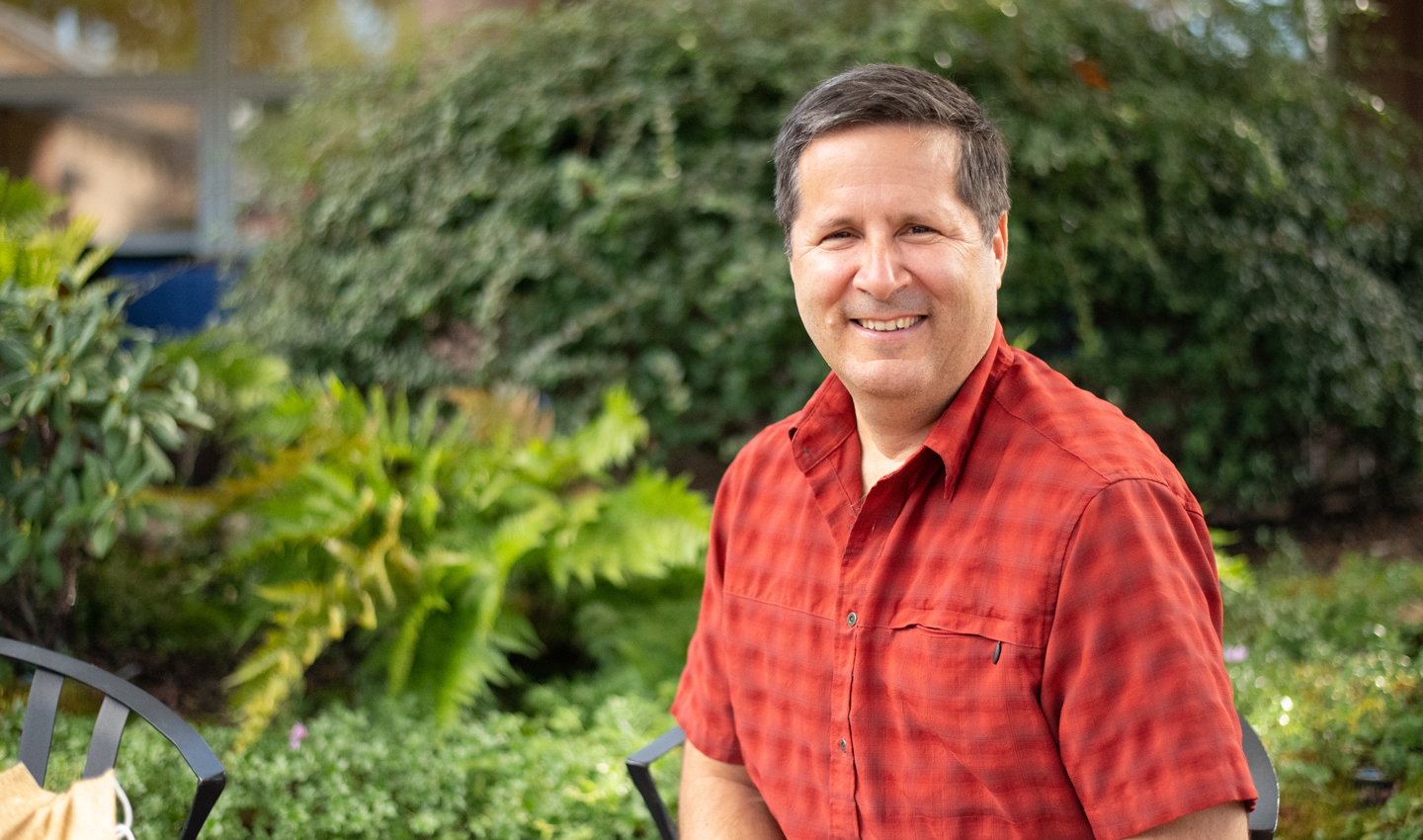Teaching rooted in real-world experience has always been a core value for researcher and professor Ricardo Gomez. Now having retired after 18 years at the Information School, Gomez has left a lasting impact both in the classroom and in the communities he works with around the world.
Gomez joined the school in 2008, and taught several courses across Informatics, Master of Library and Information Science, Master of Science in Information Management and Ph.D programs. One of his most notable courses was LIS 570: Research Methods, which he taught every year while at the iSchool.
Prior to joining the iSchool, Gomez focused on strengthening the use of information technologies for community development. That commitment continued when he began teaching almost two decades ago, building a research program centered on public access to information — including computing and access to libraries, community telecenters and cyber cafes.
“My research has always been focused on trying to make a difference with the communities that I'm working with,” he said. “I came to academia from working with communities, and my academic work was always focused on trying to help improve the work of communities and the organizations I was working with.”
As technology became increasingly dominant in the field, Gomez shifted his focus. He moved away from the field of information and communication technologies and began examining migration and information access through a social lens.
“[The field] was looking for technical solutions to social problems, and social problems don’t tend to have technical solutions,” Gomez said.
The shift led to a human-centered exploration of the migrant experience and the role of information science within it. A migrant himself, Gomez brought a personal perspective that echoes the realities of millions.
That personal connection helped distinguish Gomez’s work from other research. His commitment to community collaboration fostered strong relationships with both his students and the communities he served.
“The people we are working with are the most important aspects of the research,” he said. “Not the apps, not the technological devices, not the papers that will come out of it or the conference presentations – but the contribution to people’s well-being and to make the work better and more meaningful.”
Gomez has authored and co-authored over 190 publications, many in partnership with his students and colleagues. One notable project that stood out to many at the iSchool was his work on Washington state sanctuary laws.
“The information practices of law enforcement: Passive and active collaboration and its implication for sanctuary laws in Washington state,” published in 2021 explored information practices and collaborations between local law enforcement and federal immigration enforcement in Washington, a practice that has been prohibited since 2017.
The project was in partnership with the Center for Human Rights, where Gomez was a faculty affiliate. The research examined the level of compliance with laws that determine how Washington state handles immigration. Through the Public Records Act and FOIA, Gomez and the researchers went through thousands of pages to identify the information shared between local law enforcement and the federal immigration agencies.
The real-world impact of Gomez’s research attracted many students to pursue working on his team. One of his Ph.D students, Yvette Iribe Ramirez, worked as his TA and traveled with him to Colombia and Mexico to conduct research on the Indigenous communities.
Ramirez said Gomez’s focus on participation and centering the work around the community is one of the biggest pieces of inspiration she’s received. Gomez’s approach to working with people, both in research and in the classroom, is how she wants to pursue her own work.
“When I grow up, I want to be a teacher like him,” Ramirez said. ”Seeing how he interacts with students, he's always so enthusiastic and he's so engaging. And I think that's that genuine connection that students really like … that genuine, truly caring approach.”
In retirement, Gomez is excited to continue telling stories — this time as a fiction writer. He enjoys transitioning to fiction because it allows him to talk about reality in creative ways. One of his latest novels tells the story of three families — one in Colombia, one in the U.S. and one in Senegal — over three generations. The book covers over a century of the development of technologies and how people reacted and adapted to them.
“Each [character] draws from stories and experiences that I heard from other people and from other immigrants over time,” Gomez said. “Telling lived experiences and life stories in these ways in the form of a novel makes it accessible to people who will never read an academic paper in a journal.”
While his academic career is coming to an end, Gomez’s work continues to resonate through the communities he’s worked with, the students he’s mentored and the stories he will continue to tell.
